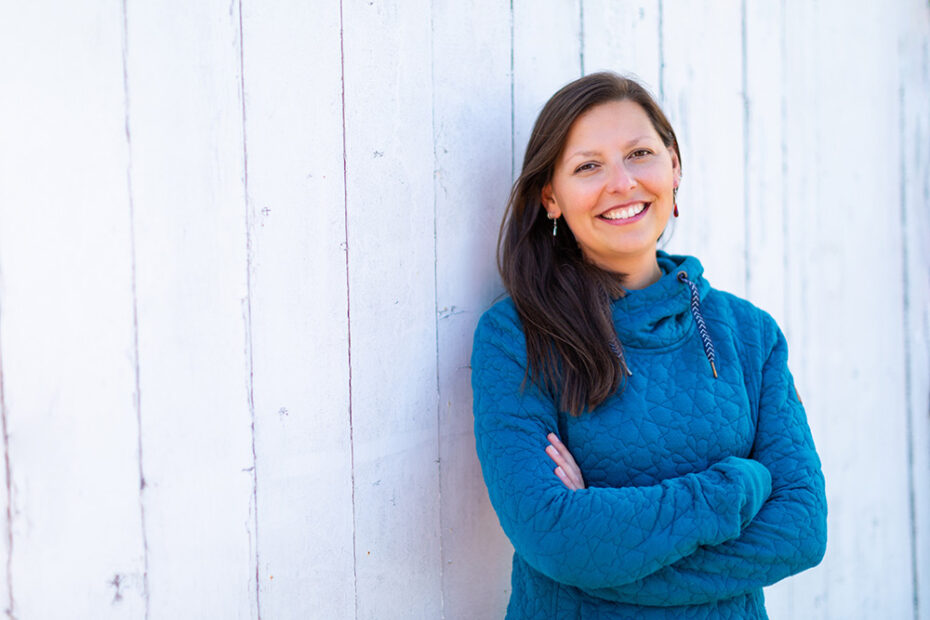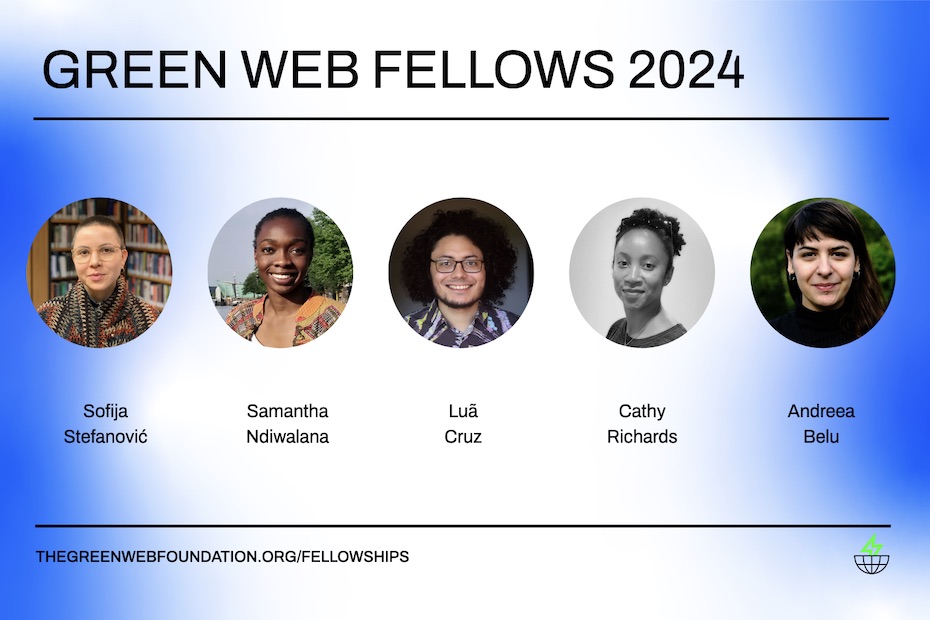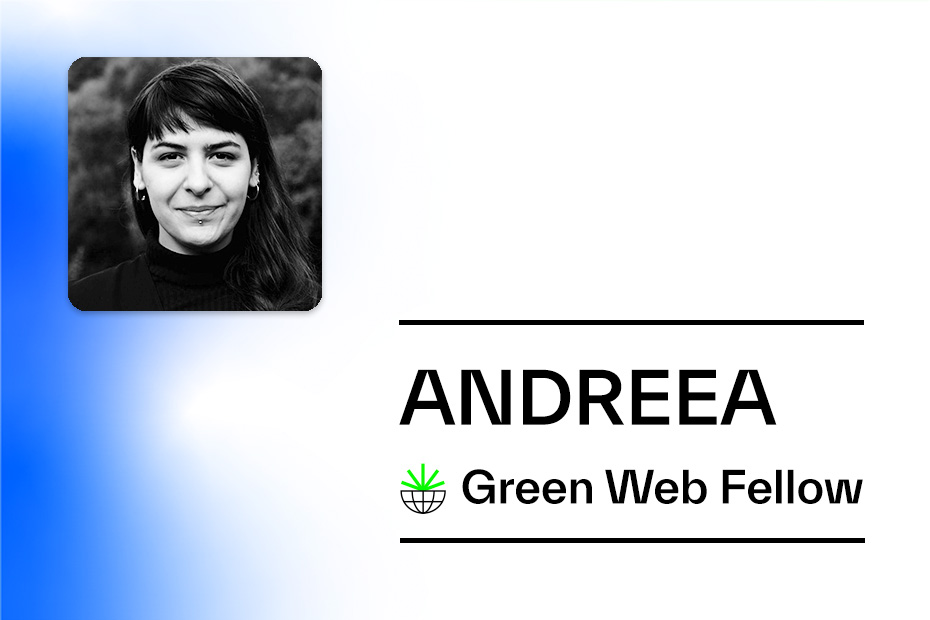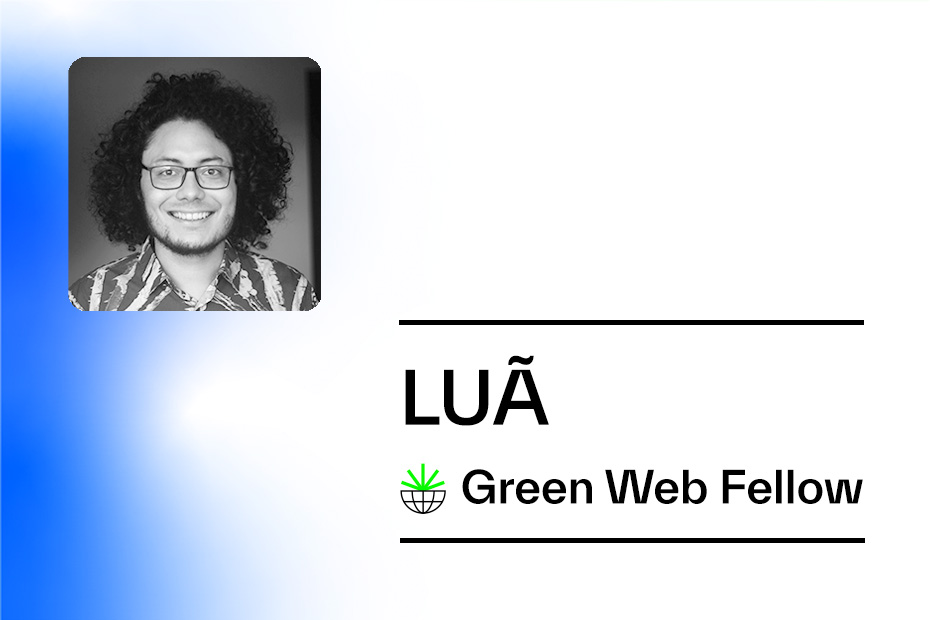In our last post, we introduced Michelle Thorne, and why we’re happy to have her help manage the open green web syllabus programme over the next twelve months. Now it’s time to start introducing our fellows themselves! In this post, we introduce Hannah and share a mini-interview to help get to know her, and why she joined the fellowship programme.
Meet Hannah
Hannah is a freelance WordPress developer from Bristol with a background in Computer Science. Before freelance life, amongst other things, she honed her management skills at the Environment Agency, where she managed large business change projects. She’s co-founder of Green Tech South West and is on a mission to raise awareness about the environmental impact of digital tech. She also likes dogs, plants and snow.
Anyway, onto our interview:
Hi Hannah, given we’re building a syllabus to help create one, we should probably ask – what does sustainable and just internet mean to you?
To me, a sustainable internet is an internet that is created to endure. Not just in terms of long lasting hardware and infrastructure, but also long-lasting software and content that exists within it.
To me a just internet means a place where everyone can access and publish truthful information, without prohibitive costs or other barriers getting in the way.
In your opinion, what are the most important things internet professionals should do to advance climate justice?
The singular most important thing I think all internet professionals can do is to work with and embrace truly diverse teams, stakeholders and communities. Being exposed to the lived experiences of others by working with and collaborating with a wide range of people, helps us to understand the impacts and perceptions of not just what and how we create at a technical level, but also how our societal systems around us work for different people and geographies.
The deeper our understanding of these experiences, even if they don’t have a climate lens, the greater our ability to make better, fairer decisions, and ultimately more sustainable world.
What role does open source play in your practice? What about peer learning and open education?
As a committed member of the global WordPress community, my entire professional developer career revolves around open source software. The WordPress CMS itself is open source and has a strong commitment to inclusivity (it’s not perfect, but the desire is real).
There is a strong culture of learning and sharing knowledge within WordPress. When I first joined the community I was stunned by how many people ran community groups with no aim other than to share knowledge, techniques and to make people feel welcome and safe within the community. There is a global network of WordPress conferences, called WordCamps with exactly the same aim, to make deeply beneficial knowledge accessible to all.
I’ve been exposed first hand to the kind of benefits to individuals, commercial interests and communities arising from this open source software and knowledge sharing culture. And not only that, I know first hand how much I have gotten back from contributing, both at an individual and commercial level.
I can’t wait to be involved in bringing what I have learned from that positive culture to a different dimension, namely creating a more sustainable internet.
What do you look forward to learning about in this fellowship program? What unique perspectives or skills would you like to contribute?
I’m looking forward to learning about the other fellows first and foremost, their stories and experiences.
I also can’t wait to have the time to take a deep dive into the four areas of research (climate justice, open code, open data and policy) and to pull them together into a coherent set of resources to try out with others.
I have a fair amount of experience in teaching others at a professional level both from my previous career at the Environment Agency where I taught a stripped down version of project and portfolio management, but also more recently where I taught adults as a part of an intensive 12 week coding bootcamp.
Anything else you’d like to share? About your fellowship plans, about the intersection of the internet, climate justice and openness, or your work in general?
Producing a set of resources to assist others in learning about a sustainable web, in its widest sense, is absolutely a dream initiative for me to work on. I’ve felt frustrated for a while that there’s no single place to get this information easily, and I’m stoked to be able to play a part in making progress on this and hopefully help other internet professionals think beyond the performance of their code when thinking about a sustainable internet.
Up next – introducing the our next of our fellows
Over the next few weeks we’ll be introducing all our fellows, with similar short interview posts. Shortly after, they’ll start blogging here as they chronicle their learning, and experiment with creating various tools to explore this field.
How to stay up todate
You can subscribe to our web feed with a feed reader, you can join our newsletter, or if you prefer, follow us on twitter at @greenwebfound for more



